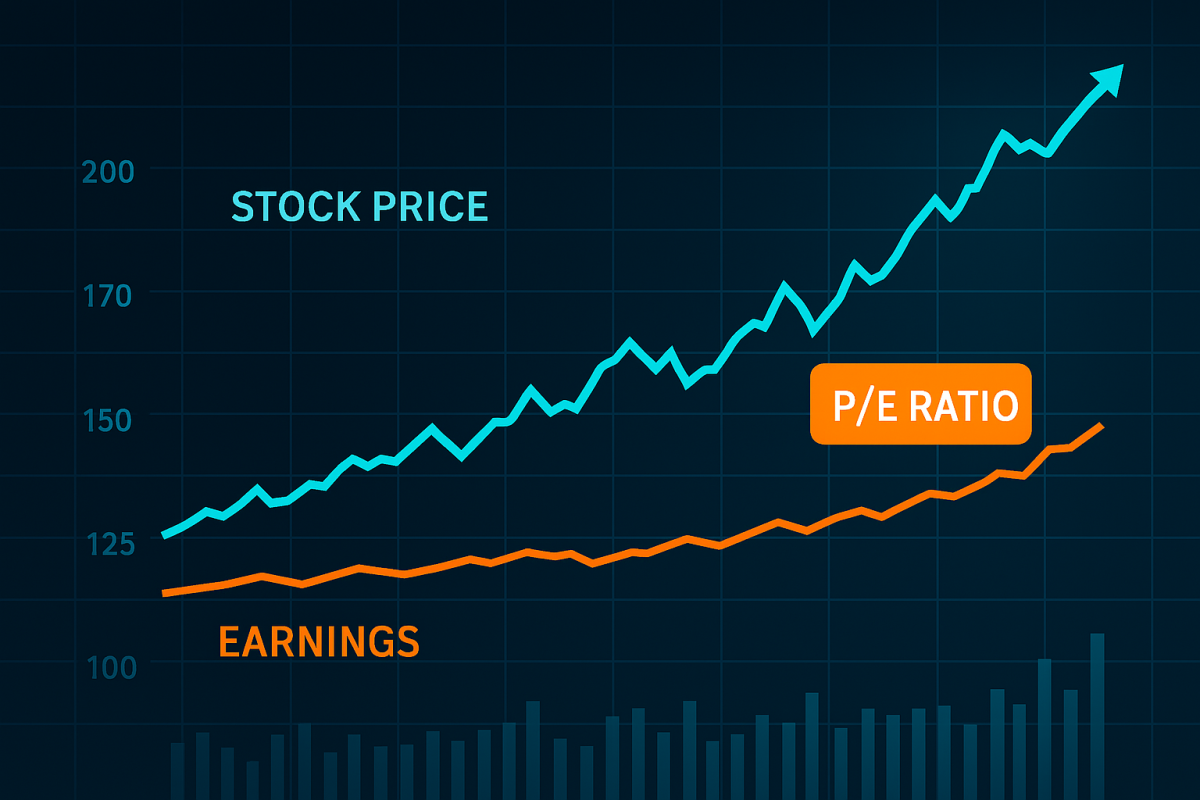How to Invest in Penny Stocks

Introduction
“Penny stocks” (sometimes called microcap stocks), are basically common shares of small public companies whose shares trade at low prices. In the United States, the Securities and Exchange Commission and the Financial Industry Regulatory Authority (FINRA) have specific rules to define and regulate the sale of penny stocks. They define a penny stock as a security that trades below $5 per share and is not listed on a national exchange, and also fails to meet other specific criteria such as price, market capitalization, and minimum shareholder equity. Out with the official definition others set the cut-off point for penny stocks at $3 or even as low as below $1. While in the United Kingdom stocks priced at under £1 are called penny shares
In the case of many penny stocks the low market price inevitably leads to a low market capitalization. Such stocks can be highly volatile and subject to manipulation by stock promoters (see below) and “pump and dump” schemes (see below). These types of stocks present a high risk for investors, who are often tempted by the expectation of large and quick profits. Penny stocks in the USA are often traded “over-the-counter” (i.e. by telephone or computer rather than on the floor of a stock exchange) on the Over-the-Counter Bulletin Board (OTCBB) (see below), or OTC Markets Group (OTCMG) (see below).
Over-the-Counter Bulletin Board (OTCBB)
The OTCBB is a United States quotation medium used for many over-the-counter equity securities that are not listed on the NASDAQ or other national stock exchanges. Brokers/Dealers who subscribe to the system (which is not electronic) can use the OTCBB to enter orders for OTC securities. According to the Securities and Exchange Commission (SEC) fraudsters often claim or imply that an OTCBB company is a NASDAQ company to mislead investors into thinking that the company is bigger than it is.
The OTCBB once collected 100% of quotes, but that number has declined with the rise of its competitor OTC Markets (commonly known as the “Pink Sheets”) which uses an electronic quotation system. Companies quoted on the OTCBB, although they must fully report in accordance with all required SEC filings, have no market capitalization, minimum share price, corporate governance or certain other requirements quoted. Companies which have been "de-listed" from stock exchanges for falling below such requirements often end up being quoted on the OTCBB.
Over-the-Counter Markets
Stock of non-reporting companies (those without current SEC filings) may be quoted in the Over-the-Counter Markets or “Pink Sheets” as they are usually known as. Most OTCBB companies are dually quoted, meaning they are quoted on both the OTCBB and the “Pink Sheets”. Stocks traded in the “Pink Sheets” are usually lightly traded microcap/penny stocks, and both retail and institutional investors usually avoid them, because of fears that share prices are easily manipulated and therefore a potential for fraud exists.
OTC Markets established a categorization system to indicate the level of financial and corporate disclosure provided by the companies using its quotation system. Categorization is based on the level and timeliness of a company's disclosure and any of the “Pink Sheet” categories can include both high quality as well as speculative, troubled, or questionable companies. Investors are normally encouraged to use caution when considering many of these companies for investment.
As a guide, the suffix "OB" in a stock-ticker listing signifies OTCBB while "PK" signifies "Pink Sheet".
Don't crash and burn!!!

Risks and Scams
There are a number of reasons that penny stocks (which are also referred to as microcap stocks) are a higher risk than regular stocks. The main ones are;
● There is a lack of information available about the companies which make it difficult to make an informed decision. There is also concern that the information that is available is not from credible sources.
● They are not always traded on the stock exchange. Because of this the companies do not have to file with the SEC, meaning they are not subject to public scrutiny.
● There is a lack of a historic data for these companies and many of them are considered to be either newly formed or approaching bankruptcy.
● The companies have a low level of liquidity which may mean that anyone with stock in these companies may find it difficult to sell them. Low liquidity also means that some traders could buy large amounts of the stock and then artificially hype it up then sell it to an unsuspecting investor. This is also known as “pump and dump”.
● Unlike the majority of large well-established companies, many companies that issue penny stocks do not publish quarterly and annual reports which are available to the public. This lack of information about its operating history and financial position increases the risk for an investor. The price of such stock can sometimes be based more on the aggressive marketing of the selling broker than on the real value of the company.
Microcap Stock Fraud
Microcap stock fraud is a form of securities fraud involving stocks of so called "microcap" companies which are generally defined in the United States as those with a market capitalization of under $250 million. Many microcap stocks are penny stocks. Microcap stock fraud normally takes place among stocks which usually do not meet the requirements to be listed on the stock exchanges and are therefore traded on the OTCBB and the “Pink Sheets”.
Pump and Dump
"Pump and dump" is a form of microcap stock fraud that involves artificially inflating the price of a company’s stock through false and misleading positive statements, in order to sell the stock which was purchased cheaply at a higher price. Once sold the overvalued shares price falls and investors lose their money. Stocks that are the subject of “pump and dump” schemes are sometimes called "chop-stocks".
This strategy is generally part of a more complex grand scheme of market manipulation on the targeted company. Instead of putting out legitimate information about a company the promoter sends out bogus e-mails ("Pump") to millions of potential investors in an attempt to drive the price of the stock upwards. In some cases they also use telemarketing or social media as a means to promote these schemes. After they accomplish their goal of artificially inflating the stock price, they quickly sell the shares ("Dump") and the price usually then falls like a stone, taking all the victims money with it.
Stock Promoters
A stock promoter is basically someone who promotes a stock, ultimately attempting to persuade others to purchase it so that its share price increases. Stock promoters used to rely on cold calling on prospective investors but now mainly use the Internet, which provides for a much more efficient method of promoting a stock to a wider audience. Usually, stock promoters promote penny stocks because of the difficulty in finding information on these companies as they are normally listed on the OTCBB or OTC Markets, which do not require that companies provide as much financial information as other exchanges, such as the NASDAQ or NYSE. Stock promotion is a generally illegal and fraudulent activity.
Some of the other unscrupulous brokerage practices to be aware of include; "bait and switch," unauthorized trading, and "no net sales policies” in which customers are not allowed to, or are discouraged from, selling stocks
Make sure you can see the woods for the trees!!!

Reducing the Risks
Penny stocks are not all bad, but they are very high-risk investments that are not suitable for all investors. Some companies on the OTCBB and “pink sheets” are good quality, and many are working particularly hard to make their way onto the more reputable NASDAQ and NYSE. If you cannot resist the lure of these types of stocks, make sure you carry out comprehensive research and fully understand what you are getting into.
● The Securities and Exchange Commission has published many warnings to investors about investing in penny stocks. Use the SEC website to search for a particular company to see whether there are any known problems with it.
● If you receive an email recommending a particular penny stock, check the disclaimers to see if the writer of the recommendation is being paid for their services. If they are, this is a warning sign to avoid that stock. The good (or undervalued) stocks are usually kept secret by the professionals, not advertised in an unsolicited email. Whether it is via an email, newsletter or social media always check the disclaimer.
● If you do decide to purchase penny stocks it is strongly suggested that you limit any single purchase to no more than 5 percent of your overall portfolio. That way even if you do take a loss, you should not have invested more than your can afford to lose.
● Whatever you trade in it is essential that no individual trade can wipe out your portfolio if its price crashes. Also setting a time to sell your stocks is vital. Some professional dealers suggest setting a limit of 50% profit then sell is a sensible margin. Others say that if you make a 20% to 30% return in a few days then sell the stock. Just do not get greedy.
● In order to invest in any stocks, you will need to have an easy way to make transactions. Online brokerage accounts offer straightforward access to stocks. Although you will have to pay commission and annual fees these are usually minimal. Make sure that your online brokerage account gives you the information that you need about stocks that helps you make the right decisions.
^^^^^^^^^^^^^^^^^^^^^^^^^^^^^^^^^^^^^^^^^^^^^^^^^^^^^^^^^^^^^^^^^^^^^^^^^^^^^^
@ 2013 Brian McKechnie (aka WorldEarth)









